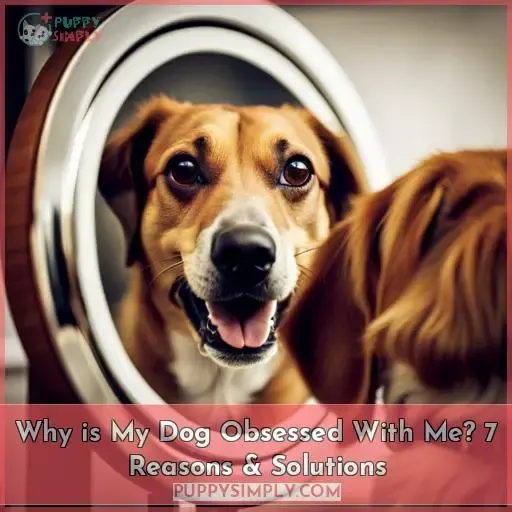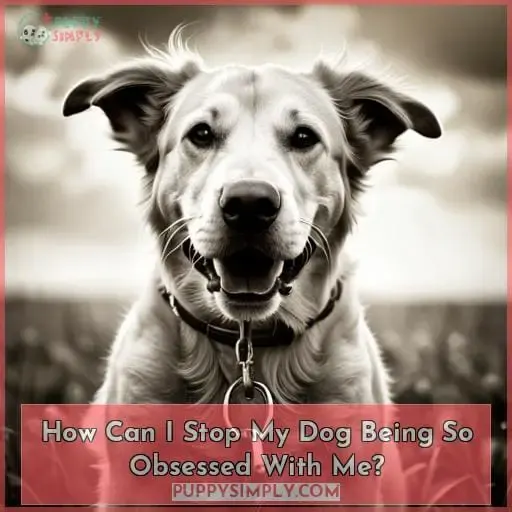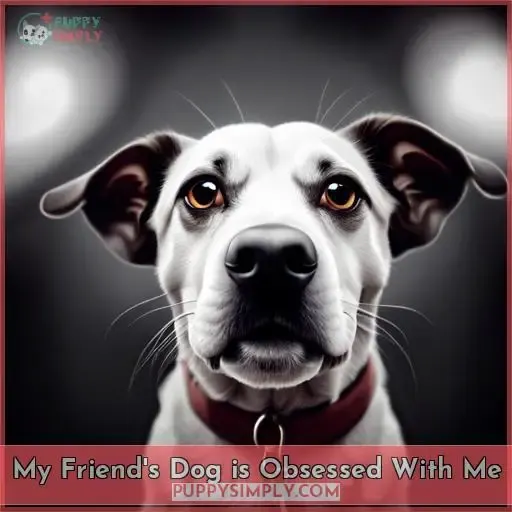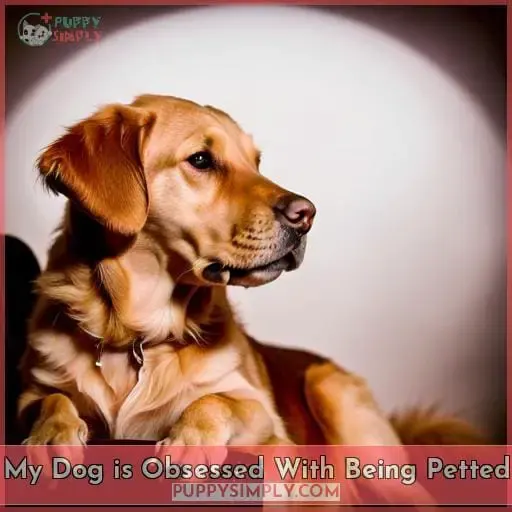Why is my dog so mental

Can dogs have mental disorders? What you need to know
Living with a mental disorder is often an isolating experience. Fortunately, it has become more socially acceptable to discuss mental health, and better treatment options are available. But while the stigma surrounding mental illness has lessened its grip, mental health conditions are still prevalent. Roughly 1 in 5 Americans experiences mental health disorders, but mental disorders arent limited to humans. Have you ever wondered, Can dogs have mental disorders? The answer might surprise you.
In a 2013 study conducted by Emory University, scientists found that the areas of the dogs brain responsible for emotions are remarkably similar to ours, which means dogs can suffer from anxiety, depression, and obsessive-compulsive disorder, commonly known as OCD. Because our dogs cant tell us when theyre upset, its up to us to recognize the signs. Well share the most common mental health issues dogs face, the dog mental illness symptoms you should look out for, how you can help your pooch at home, and when its time to contact your veterinarian.
Anxiety
Anxiety is relatively common in dogs, though it takes different forms. Lets look at the most common forms of anxiety found in dogs.
Age-related anxiety
Dogs experiencing a decline in memory, perception, and awareness may suffer from age-related anxiety, which is often associated with cognitive dysfunction syndrome. The decline resembles Alzheimers disease, which is heartbreaking for humans, who can understand whats happening to them. And its all the more confusing for dogs, as they cant understand what to expect or why its happening. Aggression, confusion, destructive behavior, and housebreaking accidents are common.
Fear-related anxiety
Some dogs experience fear-related anxiety, reacting fearfully in response to loud noises like fireworks. Barking excessively, hiding, panting, drooling, and trembling when they hear loud noises are common indicators that your dog suffers from fear-related anxiety.
Separation anxiety
Another type of anxiety frequently found in dogs is separation anxiety. Many dogs enjoy spending time with their owners, but separation anxiety is more pronounced than moping when you go away. Excessive barking, urinating and defecating inside the home, and chewing furniture are all common behaviors in dogs who fear being left home alone.
Depression
If youve recently moved or lost a member of the family, you may notice your pup wanting to spend less time playing. He may also become lethargic, experience changes in appetite, or exhibit behavioral changes. Like humans, dogs sometimes withdraw when theyre depressed, spending hours sleeping and hiding away from others.
Obsessive-compulsive disorder (OCD)
Obsessive-compulsive disorder is a complex condition that may resemble anxiety or depression. Simply put, OCD in dogs is an unusual fixation on certain objects. Your dog may dig in the same spot, chew his food bowl, pace excessively, lick themselves (often causing acral lick dermatitis), or repeatedly chase his tail.
Symptoms of mental disorders in dogs
Because they cant tell us how they feel, diagnosing your pet is risky. Urinating in the home could be a symptom of depression, but your dog could also have a urinary tract infection. If you notice abnormal behavior in your pup, you should consult a veterinarian to determine the cause of the problem. Keep an eye out for the following signs:
Anxiety symptoms:
- Hiding
- Destructive behavior
- Trembling
- Excessive barking
- Diarrhea or vomiting
- Excessive grooming
- Self-harm
- Attempts to escape the home or yard
- Lethargy
Depression symptoms:
- Weight loss
- Loss of appetite
- Lethargy
- Refusal of water
- Sudden changes in behavior
- Avoidance of social interaction
Obsessive-compulsive disorder symptoms:
- Self-harm
- Excessive tail chasing
- Excessive grooming
- Unusual, repetitive behavior
- Avoidance of social interaction
Because many of these symptoms are attributed to more than one mental health disorder, its best to let your vet diagnose your dogs symptoms. They can rule out physical causes and recommend treatment options that can put your dog back on the path to wellness.
Treating mental health problems in dogs
Once your dog has been properly diagnosed, youll be able to help him start to feel better. Ensure your pup eats a nutrient-rich diet, has access to plenty of clean water, and gets an adequate amount of exercise for his size and health limitations. A sedentary lifestyle is often a contributing factor to mental health conditions in dogs.
Its natural to worry about your dog when hes experiencing mental health issues, but you should also take precautions. Giving him too much attention may cause anxiety, so let your dog set the tone. Try not to smother him with affection when he wants to spend time on his own. Similarly, allow his likes and dislikes to lead you. If your dog chews on your shoes, get him a few high-quality toys hell enjoy chewing.
Take your pup to the vet for frequent checkups. Not only is it good for your dogs physical health, but youll also be able to keep your vet updated about any behavioral changes your dog exhibits. When in doubt, consult a professional dog trainer for help. They can help you choose the best methods for correcting your dogs behavior without worsening the problem.
Dogs are part of the family, and its our duty as pet parents to know the symptoms of mental health issues like depression, anxiety, and OCD in dogs. When you know what to look out for, youre better able to know when its time for a trip to the vet. The sooner your pup begins treatment, the sooner hell return to health and happiness.
Editors' Recommendations
Why is My Dog Obsessed With Me? 7 Reasons & Solutions (2024)
This site is supported by our readers. We may earn a commission, at no cost to you, if you purchase through links.

Its a common question for most pet owners: why is my dog so obsessed with me? Does he think Im his personal chew toy, or does he just love being around me? Whatever the reason may be, its important to understand whats causing your pup to follow you everywhere and take steps to help him break this habit.
Take one familys story as an example: their Labrador began following them around constantly and would even get anxious when they left the house without him. After realizing that there was more going on than simple adoration of his owners, they decided it was time to get professional advice for how best handle their pups obsessive behavior.
Now let us explore some of the potential root causes behind canine obsession from basic breed traits all the way through separation anxiety along with tips on how you can teach your pooch healthier habits that dont involve constant attention-seeking behaviors.
With patience (and maybe a few treats!), you can help your pup learn better ways of expressing himself while setting limits in order keep everyone safe and comfortable at home both humans and furry friends alike!
Key Takeaways
- Dogs can become obsessed with their owners for various reasons, including reinforcement, breed traits, companionship, and separation anxiety.
- Obsessive behaviors, such as Velcro dog syndrome, can indicate underlying health issues and should not be ignored.
- Sudden changes in a dogs behavior may indicate separation anxiety, which can lead to destructive behavior and harm to the dog.
- Providing time-outs, stress reduction techniques, and interactive toys can help alleviate separation anxiety symptoms.
What Does It Mean When Your Dog is Obsessed With You?

 Its not uncommon for dogs to become obsessed with their owners, especially if the owner is providing lots of attention. If your pup has suddenly become overly attached, it may be a sign that something else is going on.
Its not uncommon for dogs to become obsessed with their owners, especially if the owner is providing lots of attention. If your pup has suddenly become overly attached, it may be a sign that something else is going on.
Reasons for dog obsession can range from breed traits to separation anxiety and even obsessive-compulsive disorders; however, an obsession with hands specifically could indicate underlying medical issues or pain in your pet.
Lets take a closer look at what causes this sudden onset of obsession and how you can help provide comfort for your furry friend.
Reasons for Dog Obsession
Your furry companion may be following you around due to reinforcement, breed traits, companionship, or separation anxiety but this behavior can have both positive and negative effects on your relationship.
Reinforcement through petting habits often motivates a dog to stay near its owner. Breed traits, like herding dogs natural instinct of wanting to protect their flock, is another reason why some pups follow us everywhere we go.
Companionship might also explain why theyre so clingy as it gives them comfort and security when in our presence. However, if external changes spark fear or anxiety for the pup, then it could lead to obsessive behaviors such as a velcro dog syndrome, which should not be ignored as it could indicate an underlying health issue.
The Alliance of Therapy Dogs offers resources and membership for learning about how best to help ease any anxiousness that your four-legged friend may experience, along with certifying therapy dogs too! Positive reinforcement, coupled with interactive toys/distractions, can help alleviate these symptoms, while understanding human cues will strengthen the bond between you both even further!
Sudden Onset of Obsession
Sudden changes in your pups behavior may indicate that theyve suddenly become obsessed with you. If this is the case, it could be a sign of separation anxiety, which can lead to destructive behavior and potential harm to themselves if left unchecked.
Safeguarding your pet from these issues is key. Providing time outs away from activity, stress reduction techniques like calming aids, and interactive toys/distractions are all extremely helpful! Additionally, hyperactivity should also be monitored, as too much exposure to stimulation can cause them distress.
Dog owners need to remain mindful when their beloved furry companions experience a sudden change in behavior. Velcro dogs might just need more attention, or it could signal an underlying diseased pet issue.
Obsession With Hands
If your pup finds comfort in brushing up against you or following the motions of your hands, they may be exhibiting signs of obsession. Paw licking, leash tugging, constant barking, and tail wagging while making eye contact are all good signs that a healthy bond is being built between the dog and human.
However, medical issues can also arise if this behavior persists. Its important to consult with a vet or join an organization like The Alliance for Therapy Dogs to learn more about how best to care for them.
There are many options available, from playtime activities tailored specifically for anxious dogs to exploring desensitization techniques, so both parties can maintain their health and well-being!
How Can I Stop My Dog Being So Obsessed With Me?

 You can help your pup reduce their obsession with you by offering interactive toys and distractions to occupy them during times of separation.
You can help your pup reduce their obsession with you by offering interactive toys and distractions to occupy them during times of separation.
To start, socializing your dog is a great way to get them used to being around other people and animals. This will also give the pet an opportunity for physical exercise, which helps their overall health, as well as providing mental stimulation.
Additionally, its important that you are aware of any anxiety symptoms in order for you to properly address them through training methods such as desensitization or introducing food rewards when they successfully complete a task on command, like sit or stay.
If these methods do not work, then consider seeking professional assistance from veterinary behaviorists who specialize in treating dog separation anxiety specifically.
Creating activities that involve positive reinforcement is another way of developing the loving bond between owner and pet while helping decrease anxious tendencies at the same time.
It might be beneficial if owners limit close contact with their dogs until they have established appropriate boundaries. Constantly following or looking at someone all day can become unhealthy over time due to stress issues associated with this type of obsessive behavior patterning itself into the animals lifestyle habits without proper guidance from its human family members.
By establishing trustful relationships built upon mutual respect, understanding, love, and patience, our furry friends will understand just how much we value having long-lasting companionship together throughout lifes journey!
My Friends Dog is Obsessed With Me

 Your friends pet may be exhibiting signs of separation anxiety, which can lead to an unhealthy obsession with people theyre close to. According to the Alliance of Therapy Dogs, up to 14% of dogs suffer from this condition.
Your friends pet may be exhibiting signs of separation anxiety, which can lead to an unhealthy obsession with people theyre close to. According to the Alliance of Therapy Dogs, up to 14% of dogs suffer from this condition.
Socializing your pup and engaging in physical exercise is a great way for them to get used to being around other animals and people. It also provides mental stimulation for better overall health. Owners should observe their dogs behavior closely for indicators that prompt early action or training tips on how to modify their present conduct.
Dog-obsessed humans should follow a separation anxiety guide. Interactive toys and distractions can help reduce anxious tendencies without compromising the loving bond between you and your dog during times apart.
Reward systems, like hide-and-seek games using treats, provide an enjoyable distraction for both parties involved, reducing stress over long periods associated with these behaviors.
Its important to seek professional assistance from veterinary behaviorists whenever necessary. This ensures that proper measures are taken before any risks posed by these behaviors become too serious, not only for our pets but for us as well.
My Dog is Obsessed With Being Petted

 Constantly petting your pup can be a sign of separation anxiety, so its important to observe their behavior and take appropriate measures.
Constantly petting your pup can be a sign of separation anxiety, so its important to observe their behavior and take appropriate measures.
- Confinement in safe areas while away from home.
- Provide playtime with other animals or humans for an active social life.
- Positive reinforcement by reward systems like hide-and-seek games using treats as a distraction for both parties involved.
- Stress relief through physical exercise such as walking or running together with your rottweiler kind furry best friend!
- Create positive associations over long periods associated with these behaviors, including human benefit activities like brushing each others fur every day!
It is essential to ensure all safety precautions are taken when introducing new routines into any relationship, especially one involving pets. Seeking professional assistance from veterinary behaviorists whenever necessary will guarantee proper action is taken before any risks posed by these behaviors become too serious, not only for our pets but also for us owners included! With patience, understanding, and lots of love, we can help make sure our canine companions have fulfilling lives free of negative emotions surrounding confinement situations they may feel uncomfortable in alone at some points in their lives.
What Are the Reasons Why My Dog Follows Me?

 You may have noticed that your pup is always following you, and its natural to wonder why.
You may have noticed that your pup is always following you, and its natural to wonder why.
Reinforcement can be when a dog learns through positive feedback from its owner whenever they behave well. Breed traits are the inherited characteristics of different types of dogs, which often include loyalty and watchfulness.
Finally, companionship explains how dogs thrive around humans due to their need for social interaction with another living being.
All three reasons may contribute to why your furry friend wants nothing more than to be by your side at all times!
Reinforcement
One way to strengthen the bond between you and your pup is through reinforcement, such as positive reinforcement for desired behaviors. Socialization with other people or animals can help reduce fear issues that may arise when theyre left alone.
Providing health benefits like regular exercise habits also encourages good behavior in dogs and helps them stay healthy. Positive reinforcements like a game of chase or treats further strengthen their relationship with family members while providing them mental stimulation during alone time.
Reinforcing desirable actions will not only create a strong bond but teach your pup that being around humans is always beneficial!
Breed Traits
Certain breeds of dogs have traits that make them more likely to follow their owners, such as being loyal, protective companions. Socialization and exercise needs should be considered when selecting a breed. Additionally, understanding body language and space needs can help with bonding between pet and owner.
Vocalizing is also important; some breeds are naturally predisposed to understand our cues due to centuries of natural selection in the United States.
Companionship
You and your pup have a unique bond, built on companionship that cant be replaced. Dogs are naturally drawn to their owners as they seek comfort in the particular person who loves them unconditionally.
Anxiety triggers, like a newly added pet or changes in the environment, can blur the thin line of affection between man and his four-legged friend. To avoid punishment, reward-based training is essential for maintaining this trust issue while also building an even greater connection with one another through shared moments of joy! Developing a relationship rooted in understanding helps create strong bonds between humans and dogs based on mutual respect and unconditional companionship allowing both owner and pup to experience true friendship.
How Does Following Me Benefit My Dog?

 Having a dog that follows you around can be an immensely rewarding experience. Your pup likely follows you because they want to better understand their owner, as well as receive reinforcement for good behavior.
Having a dog that follows you around can be an immensely rewarding experience. Your pup likely follows you because they want to better understand their owner, as well as receive reinforcement for good behavior.
Better Understanding of Owner
By being so close to you, your pup can get a better understanding of how you think and feel. This helps them pick up on subtle changes in behavior, like when its time for playtime or if they need to be quiet.
They also understand the verbal cues that tell them whats expected of them. They scent mark their territory around new home environments and socialize with other animals. Resource guarding may come into play too; rescue dogs often learn this behavior due to past experiences.
Additionally, having an overall healthy diet will reduce anxiety levels, which could lead your pup to follow you more closely than usual out of fear aggression or dog separation anxiety.
Reinforcement
Reinforcing desired behaviors through positive reinforcement can help strengthen your bond with your pup, leading them to follow you more closely. Certain breed traits may predispose dogs to being clingy, but its important for owners to understand their own dogs needs and use the right methods of reinforcement when training.
Providing companionship benefits such as love and affection in return for good behavior helps create a trusting relationship between the two, encouraging loyalty from both sides.
Oftentimes, separation anxiety or lack of exercise may be behind a dogs obsession with its owner. Making sure theyre getting the right amount of food or enough physical activity can dramatically reduce this issue.
Its also important to keep an eye out for any serious behavior issues that could arise due to recent changes in routine.
How Will I Know if My Dogs Following Has Gone Too Far?

 Its important to be aware of signs that your pup may have become overly attached or obsessed with you. If your dog is constantly following and watching you, it could indicate separation anxiety, which can lead to destructive behavior or aggression.
Its important to be aware of signs that your pup may have become overly attached or obsessed with you. If your dog is constantly following and watching you, it could indicate separation anxiety, which can lead to destructive behavior or aggression.
Look for behaviors such as excessive barking, whining when left alone, urinating/defecating in the house while youre away these are all red flags that should not be ignored.
Indications of Separation Anxiety
If your pup is constantly following you, it could be a sign that they are suffering from separation anxiety. Common symptoms include urinating/defecating in the house, aggression (the most dangerous symptom of dog anxiety), destructive behavior, and depression.
If left untreated, these behaviors can have serious health consequences for your pet. To help alleviate their stress levels, provide interactive toys or create exit points to give them some space when needed.
The process of domestication has given our furry friends many health benefits like companionship and improved overall moods, but sometimes too much attention isnt always a good thing, so make sure to take breaks throughout the day as well!
Seeking out resources from organizations such as Therapy Dogs can also be beneficial in understanding common symptoms of separation anxiety while still maintaining those special moments with all the good things that come with having an animal companion around!
Aggressive Behavior
You cant ignore aggressive behavior in your pup, as it is the most dangerous symptom of dog anxiety. Its important to be aware of possible triggers and avoid these situations as much as possible.
If you find that your pet displays signs of aggression, try using calming techniques such as aromatherapy or introducing toys/treats to distract them from the situation. Additionally, if your pup has become overly obsessed with following you around all day long, this could also indicate underlying canine depression or other behavior issues that need addressing before they lead to more dangerous situations like growling at strangers or other dogs.
Treating separation anxiety through desensitization and providing interactive distractions for when youre away are great ways to prevent triggers while still allowing a strong bond between yourself and your furry friend!
Frequently Asked Questions (FAQs)
How Can I Tell If My Dog is Obsessed With Me?
Observe your pups behavior. Does it constantly follow you or watch you? If so, it may be a sign of separation anxiety or needing more attention from you. Provide interactive toys and desensitize them to being alone for short periods of time.
How Can I Get My Dog to Stop Following Me Everywhere?
Try desensitization and interactive toys to help your pup become less dependent on you. Consider their breed traits too; some dogs are naturally clingy. Speak with a professional if the behavior persists, as it may be caused by separation anxiety or other health issues.
Is it Normal for My Dog to Follow Me Everywhere?
Its perfectly normal for your dog to follow you everywhere! It could be a sign of love, companionship, or even anxiety. Make sure to give them plenty of exercise and mental stimulation, and consider seeking professional help if the behavior persists.
How Can I Tell if My Dog Has Separation Anxiety?
If your dog is constantly following you, it may suggest separation anxiety. Look for signs like aggression, destructive behavior, depression, or changes in sleeping or eating habits.
What Are Some Fun Activities That I Can Do With My Dog to Strengthen Our Bond?
Spend quality time with your pup by taking them for walks, playing fetch or tug of war in the yard, teaching them tricks and commands, or even just cuddling up together! Strengthen your bond while having fun.
Conclusion
The best way to know if your dogs following has gone too far is to be aware of the signs and symptoms of separation anxiety. If you notice your pup exhibiting any aggression, destructive behavior, or depression, its a good sign that something is not quite right.
However, if your dogs obsessions are simply to be with you and to enjoy your company, it can be a beautiful thing. With a little understanding and patience, you can develop a strong, healthy bond that will last a lifetime.


